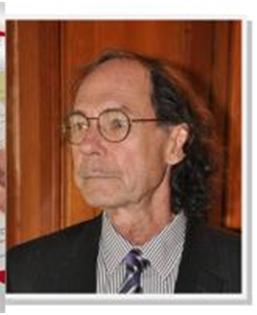Summary: President Donald Trump was out of his depth at the G20 conference and other leaders are stepping in to fill the void left by lack of U.S. leadership on multiple issues.
President Donald Trump has abdicated the role of undeclared leader of the free world, a traditional authority held by U.S. presidents until now. Trump favors a more parochial mission intended to put America's interests ahead of any global concerns. As a result, we are witnessing the rise of other responsible parties who are stepping forward to fill the void his absence has created. Australian journalist Chris Uhlman summed up the final day of the 2017 G20 conference when he said it more closely resembled a gathering of nineteen nations.
While Trump continues his disengagement from international cooperation, and trivializes the office of the U.S. presidency with a constant stream of inane tweets, media attacks and blatant falsehoods, world leaders are quickly finding opportunities to take charge of the positions of influence he has abandoned.
Whereas President Trump chose to fulfill a campaign promise by withdrawing the U.S. from the Paris climate-change agreement, German Chancellor Angela Merkel has taken the reins once held by President Obama, and presses western efforts to curb greenhouse gases. In a G20 statement, it was noted that only the U.S. refused to sign the "G20 Hamburg Climate and Energy Action Plan for Growth." The agreement was promoted and negotiated by Chancellor Merkel and signed by 19 other nations.
In the shadow of the G20 summit, at the Global Citizen Festival in Hamburg, Governor Jerry Brown of California stepped in with a video message telling the world that President Trump --doesn't speak for the rest of America," on climate change. Brown staked his claim for international leadership when he invited citizens of the world to attend the Global Climate Action Summit in San Francisco which he will be hosting in September 2018.
Since Trump killed the long-negotiated Trans Pacific Partnership trade deal and thereby gave up U.S. initiative on trade, Prime Minister Shinzo Abe of Japan acted a few days before the G20 Summit and filled the void with a pact negotiated with the west that he called "the world's largest free, advanced, industrialized economic zone." This deal is estimated to cover 30% of the global economy and 40% of world trade. The U.S. is left out.
Earlier, Canadian Prime Minister Justin Trudeau saved NAFTA from a Trump knee-jerk promise to kill it, by lobbying the U.S. president to be less reckless.
Even Vladimir Putin has found an opportunity to show statecraft by negotiating a cease fire on Syria at the G20 meeting. He showed off new global credentials by negotiating with a weak Donald Trump, who had already given up the authority of the president's traditional role as U.S. Commander-in-Chief by handing off all military strategy and tactical decisions to his military leaders.
Back on U.S. soil, we find the governors of the fifty states filling in for Trump's withdrawal from leadership on several fronts. Domestic leaders are reacting to his empty promises to insure every citizen and to provide -- truly great healthcare." Because the U.S. legislature is unable to dismantle the Affordable Care Act and agree on a replacement plan, state legislatures in California and New York are moving forward with plans to implement single payer healthcare for everyone in their states.
In response to the Trump administration's reactionary promotion of energy from coal and renewed encouragement of offshore drilling for oil and gas, state governors across the nation have signed clean energy initiatives into law with goals ranging from control of climate change to participation in the renewable energy markets of the future.
It is difficult to understand how the goal of "Making America Great Again" is met by giving up our world leadership position, disengaging from control of international trade, ignoring the problem of global warming, and generally lowering the stature of the U.S. on the world stage. But there may be a positive side to reducing American dominance that will encourage productive actions by other countries that have been restrained by a strong U.S. It could be refreshing to have a more open dialogue and shared responsibility among nations. We could be witnessing a distribution of world leadership responsibilities where capable national leaders, who were once bullied by the United States, find opportunities to fill the void left by a man who has been elevated to his level of incompetence. Our only concern should be that an "America first" policy without capable leadership could result in making America last.
Joseph Suste bio
Joseph Suste's experience raising two daughters on a mini-ranch in Southern Oregon inspired his 2014 novel, Sharp Obsidian. His activist attempts to stop abusive interrogation tactics inspired his most recent book, The Torture Trial of George W. Bush, published by Joshua Tree Publishing in 2016. He's an engineer, actor, playwright, fiction writer, and poet. Follow him on twitter @JosephSuste.





